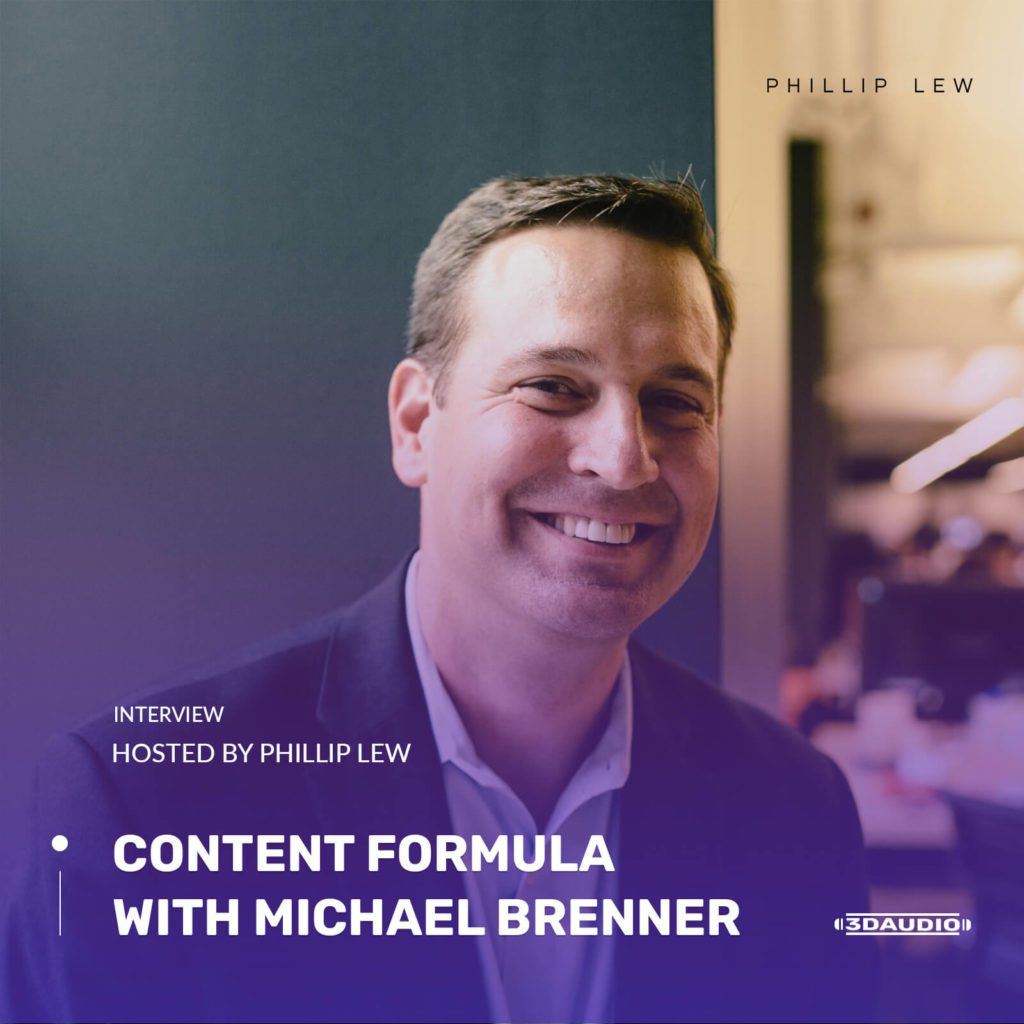
00:00
Paused.
Book Phillip to speak at your next event!
Content Formula with Michael Brenner
PHILLIP
To help us answer this question, I decided to invite Michael Brenner to this interview segment of Innovators. Michael is a consultant on marketing, leadership, customer experience, and employee engagement. He’s recognized as a top business leader by the “Huffington Post,” and a top CMO influencer by Forbes. As a keynote speaker on leadership, culture, marketing, he helps companies reach, engage, and convert new customers through employee engagement and storytelling. To get started, I decided to ask Michael to share his story with us about how he got involved with content marketing.
MICHAEL
And the reason I thought I was successful as a salesperson was because I focused on really solving problems for customers, and I thought marketing should do the same. And so I, you know, I… I then went into a 20-year career as a corporate marketer, and once social, you know, sort of, digital platforms and blogging became a thing, I, you know, continued to follow my frustrations and to use those platforms to share what I thought was ineffective and outdated from a marketing perspective. And was lucky enough for about four years ago to go off on my own and start my own consulting practice.
As a former corporate marketing insider, it was the perspective to help other companies, as many companies as I can to solve those problems, to stop doing the things that I think are ineffective, to, you know, to transition and transform into more of a modern marketing approach. Which when you really think about it, I think, for every kind of business comes down to stop trying to promote and create propaganda. We’re too smart anymore to see through that stuff and just start helping and, you know, start communicating in a way that that comes from a place of wanting to solve problems.
And those companies that do that are effective and the companies that, you know, spend money on propaganda are ineffective only trying to communicate that they’re a better solution. So, you know, that’s, I guess, maybe a long, long answer to a simple question. But that’s, you know, I think how I’ve gotten where I am is just following those frustrations with a mission of trying to help people.
PHILLIP
MICHAEL
What it makes us different is the people behind it. That’s what we mean when we say that, you know, the only real way to differentiate anymore is through the way that you communicate the content that you create. And, you know, the vast majority of companies, A, they don’t realize that they can be displaced, you know, immediately, and there’s plenty of examples. But, you know, just also don’t realize that people don’t care that you think you’re different. And, you know, I love to tell people, like, no one really cares about your brand.
There’s, you know, I always…I use Starbucks, Netflix, and Amazon as just a couple of examples of companies…Apple as well. There are maybe four. Four brands that each of us could maybe mention that truly matter to us. After that, everything else is replaceable. I could care… I really don’t care if I start using a different toothpaste than the one I used this morning. I don’t really care…I don’t know what the name brand of the pen I’m holding in my hand is right now. I…you know, all of those things, aside from three or four brands, are really replaceable. What is different? What can make us different is the content and that’s really, you know, I think why…partly why I exist as a company.
PHILLIP
So I decided, at this point, to ask Michael about a recent study I read that explained that the vast majority of content produced on the internet receives zero engagement. And what companies should be doing, who are looking to create content that is truly relevant, and interesting.
MICHAEL
But the answer to the question, “Why do we create all this stuff that doesn’t work?” is that there’s typically, an executive who asked for it, and that’s the Tweetable moment. There is…is, you know, behind every piece of bad content is an executive who asked for it. It’s funny and sad. Like most jokes, it’s sad. Like most good jokes, there’s truth and it’s sad. But the point is that it’s not about pointing fingers at executives, it’s, you know…there’s always going to be sales people that ask us to create brochures that no one will read.
There will always be CEOs that want us to stick logos on the side of buses that, you know, aren’t going to move the needle. The job that we have in marketing is to push back and to clarify our mission to engage customers. And when you simply make that the statement, hey, we are only going to do stuff that works. We’re only going to do stuff that engages, you wouldn’t do more than half of what you’re doing. And that’s such a simple thing and yet, so few of us do it.
PHILLIP
At this part of the segment, I decided to switch gears and talk to Michael about his public speaking. He is known as saying that the key to success is moving audiences from, “Inspiration to action.” I decided to ask Michael to share with us more about what he really means and how he helps corporations create content that gets traffic shares.
MICHAEL
And so, you know, I won’t make a value judgment on whether I’m able to accomplish that goal, but that’s my mission when I stand on a stage, is to really help people by inspiring them to act. And so, you know, for example, show them that the world has changed. Show them that if they don’t change they will die, and there’s plenty of examples of companies that are going through some of these transformations. And then show them the way to win, the way to succeed, and that’s the path forward.
And so that’s what I mean when I talk about inspiration to action. It’s a tough job, you know, to be honest. And it’s why, I think, most marketers and even business owners today have to be change agents in and of themselves. We have to be vigilant to the trends that are happening with consumers and the audiences that we’re trying to reach and understand what it is that’s going to inspire them.
Now, on the other side…so the other side of the question is, how do we create content that’s engaging? And that, I think, is actually an easy job. And, you know, I do workshops for clients, for example. They pay me, you know, a pretty decent amount of money. The main goal of that workshop is to inspire those teams to do something. The thing that they have to do is really easy, and I’ll give you this sentence here in a second.
The thing to do is simply to understand…and you can use free tools that everybody has available to them, to identify the keywords your audience is using to create the content that they’re already engaging with. And if you do that, you will convert and win. And that’s really simple. Like, if you look at my website, I don’t think I’ve published a single article that hasn’t had 100 or 200 page views, and let’s say my lowest number of social shares is probably 75 to 100. Because all I do, it’s not because I have a magic formula, it’s not because I’m that engaging of a writer. It’s really, there’s no secret formula. All I do is I identify the key words that I know my audience is interested or is using when they’re going to search engines.
I create the content that I already know they’re engaging with based on search and social. And when you do that, you will engage people, you’ll engage your target audience, and if you’re really good, you’ll convert them to customers and revenue. And so, that’s really the kind of two sides of that question is, one, we need to see that we’re all in the business of selling change. So we have to inspire people and help them understand that they have to change. That’s job one.
The second part of it is easy. The actionable tips is just look at keywords, look at content, and create stuff just like that.
PHILLIP
MICHAEL
If I just type those simple half of a search query into Google, Autofill will tell me what most people are searching for. It’s the world’s greatest research project. And so, once you look at the answers to those questions, if you see the search results, you already have a library of content ideas at your disposal. And so, a content plan lives in a Google search result. It’s all there for anyone to identify.
PHILLIP
MICHAEL
There’s a hero. The hero of the story in most marketing content is the company that’s promoting themselves. A really good story, really, allows the audience to feel themselves or to, you know, to sort of mirror themselves into the hero. If you think about most good movies that you’ve ever seen…like, here’s just two tips. Make your audience the hero of the story and follow the formula of every movie ever created, where the hero of the movie that you maybe are thinking of, it has a problem to solve. And they don’t solve the problem until about an hour and 45 minutes in, right?
So, if you think about most good stories, it’s like 90% problem. And 10%…the last 10 minutes, you know, the last 20 minutes of a movie, the last 2 minutes of really good movies is the resolution of the problem they’re trying to solve. And so just follow those two simple story elements. Make your audience the hero of the story, and make most of the content that you’re creating about the problem because then your audience will relate to it. They’ll say, “Yeah, this guy or this company really understands what I’m going through. Maybe they are the solution to the problem. And so, those are two really simple storytelling components that any company can put into their marketing.
PHILLIP
MICHAEL
It’s just two posts a week, you know, two… I can give you two I can give you four, but it’s two posts a week, four posts a week. We identify the key words, we identify the content that you want, but I only sell it to people that are willing to sign up for 12 months. And because, A, I’m going to create content that I know is going to engage, but B, the ones that are consistently publishing content that engages their audience, they’re the ones that break through the noise. And so, I only work with companies that commit to that and you don’t have to use me. You know, I’m not here to sell myself.
My advice to every company out there is commit to helping your customers every single day with, you know, simple content that answers their questions, and you’ll win.
PHILLIP
The keys to doing this, I think, are a combination of knowing yourself, knowing your market, and putting in the hard work, and being consistent. Thanks again for listening to this interview segment of Innovators where your future is now.
Michael Brenner provides workshops, keynote speaking, and other resources on his website, which can be found at marketinginsidergroup.com. You can listen and read the full unedited transcript of this podcast episode on our site, and enjoy more episodes at c9digital.com.
Thanks for joining me again, your host, as always, Philip Lew, as we take you, the listener, on a journey from panic to power.
OTHER PODCAST EPISODES WE THINK YOU’LL LOVE

About Phillip lew
Phillip Lew is the host of Innovators, a podcast audio experience that decodes the mysteries of exponential technology and the coming singularity. Phillip Lew is also the CEO of C9 Staff—the #1 firm specializing in deploying remote staffing teams for clients across 9 core industries.



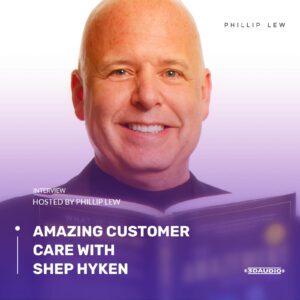
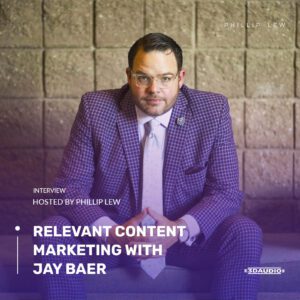






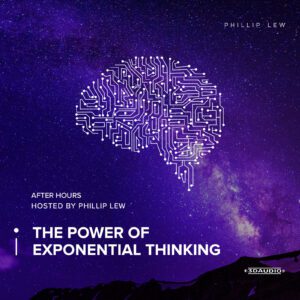
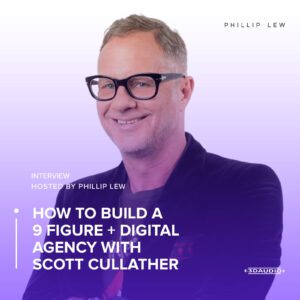

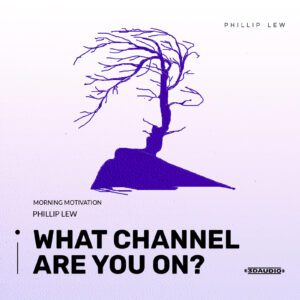
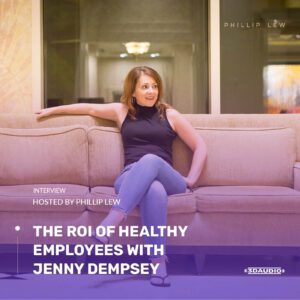
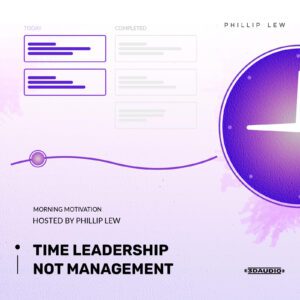
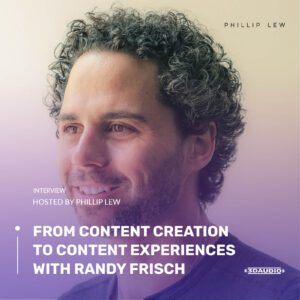
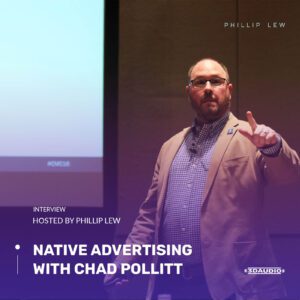

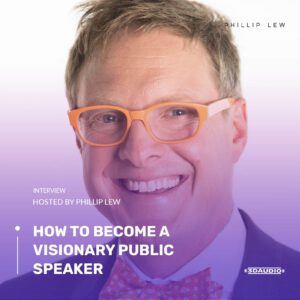
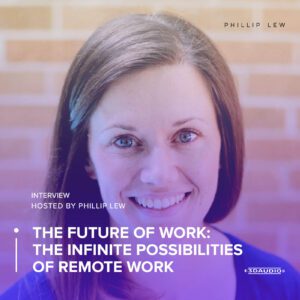
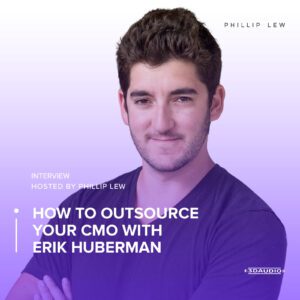
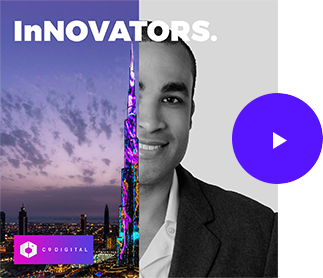
0 Comments